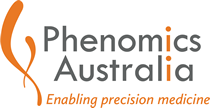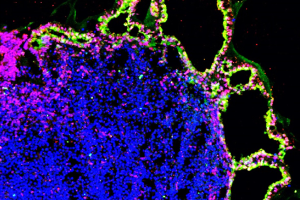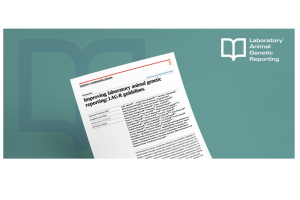Led by the Peter Doherty Institute for Infection and Immunity, and supported by services from Phenomics Australia, researchers revealed the critical role of a gene called OLAH in disease severity.
Their findings show that highly elevated expression levels of OLAH, an enzyme involved in endogenous fatty acid production, oleoyl-acyl-carrier-protein (ACP) hydrolase, were strongly associated with severe respiratory viral infections, while minimal OLAH expression was found in recovery and milder disease.
This research is the result of a fruitful partnership between the Doherty Institute and Fudan University, China, established in 2014 to address global infectious diseases, and involved collaborations with numerous researchers worldwide, including from St Jude Children’s Research Hospital, USA.
The University of Melbourne’s Professor Katherine Kedzierska (cover picture), Head of the Human T cell Laboratory at the Doherty Institute who has been leading this research since the 2013 avian influenza outbreak in China caused death in ~35% of people infected, highlighted the research’s significance in advancing our understanding of respiratory viruses and its potential far-reaching impact on patient’s health.
“We’re really excited about the potential of the OLAH gene to serve as a universal indicator of disease severity across different respiratory infections,” said Professor Kedzierska.
Analysis of blood samples from H7N9 flu (avian influenza) patients showed that those who died from the infection had higher OLAH levels throughout hospitalisation. OLAH levels were associated with life-threatening seasonal influenza virus, severe acute respiratory syndrome coronavirus 2 (SARS-CoV-2), respiratory syncytial virus (RSV) infection, and multisystem inflammatory syndrome in children (MIS-C).
The University of Melbourne’s Dr Brendon Chua, a viral and translational immunologist at the Doherty Institute, guided the innovative research and is a co-senior author of the paper. “Further investigation using animal models and cell cultures revealed that OLAH is pivotal in driving life-threatening inflammation associated with respiratory viruses,” said Chua.
To better understand the role of OLAH, genetically engineered mice were used to study OLAH-mediated disease severity. Mouse models with a CRISPR-Cas9-mediated gene knockout of OLAH were generated by Phenomics Australia Melbourne Advanced Genome Editing Centre (MAGEC) laboratory.
Dr Andrew Kueh, Honorary Research Fellow and Laboratory Head of MAGEC commended that:

“ Funding from NCRIS and PA has enabled our MAGEC mouse gene editing platform to rapidly and reliably generate gene modified mice to accelerate medical research in Australia, leading to high impact discoveries focused on improving health outcomes.”
The results supported the research found in the studies of respiratory disease in humans, ~50% of infected wild-type mice (with normal OLAH genes) did not survive the disease, whereas those without the knocked-out OLAH gene lost significantly less body weight and had higher rates of survival. The histopathological analysis of the mice models was supported by Phenomics Australia Histopathology and Digital Slide Service based at the University of Melbourne.
Tina Cardamone, Histopathology Service Manager praised the involvement saying

“ The Phenomics Australia Histopathology Service supports Australian researchers to better understand disease processes. Specialist mouse pathology services are delivered by a team of experienced medical and veterinary pathologists, and mouse pathobiologists to enable the development of new therapeutics or strategies for disease prevention.”
University of Melbourne Laureate Professor Sharon Lewin, Director of the Doherty Institute, commended the researchers for their potentially life-saving discovery.
“I’m immensely proud of the groundbreaking work conducted by Professor Kedzierska and her team at the Doherty Institute in collaboration with colleagues globally, including Fudan University. This study, which has been 10 years in the making, represents a monumental effort, ultimately shaping the future of respiratory infection management,” said Professor Lewin.
“This research provides invaluable insights that could profoundly impact clinical practice and the lives of people suffering with respiratory infections. I look forward to the day this novel method is available for use with patients.”
“Imagine if your doctor could predict whether your respiratory infection will become life-threatening or if you’ll recover quickly? Our findings suggest that OLAH expression levels could be used as a cutting-edge tool in assessing patients’ prognosis, empowering clinicians with crucial insights for early risk assessment and personalised treatment strategies.” Said Professor Kedzierska.
More information on this story can be found in the Doherty Institute article “Scientists discover gene linked to the severity of respiratory viral infections”.
By Bridget Elliott-Rudder.







